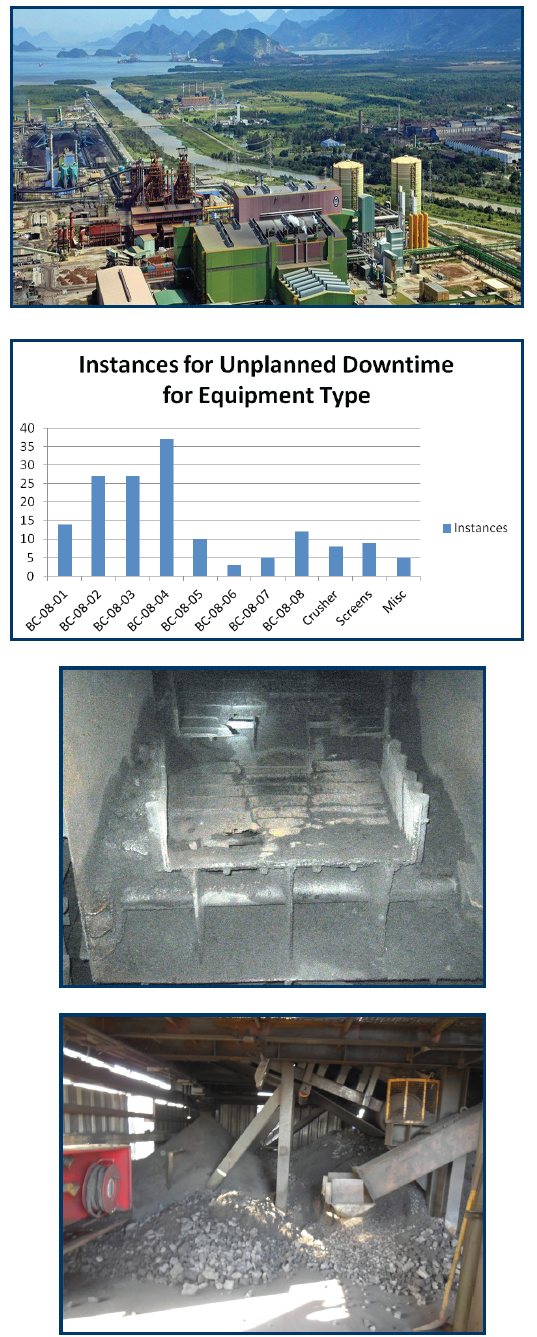Coke Handling Conveying and Transfer System Assessment for Improved Reliability
Situation
Benetech provided an assessment focused on improving the reliability of the coke handling conveying and transfer systems at the CSA plant for ThyssenKrupp. The primary focus of the assessment was to evaluate, identify, and recommend best practices, procedures, and equipment modifications to extend the overall life expectancy of the systems and reduce the number of unplanned outages that currently exist at this facility. Along with evaluating the systems, Benetech was asked to assess the current workforce to determine if the plant efficiently utilized the operation and maintenance activities, inspections, and corrective countermeasures to reduce unscheduled downtime.
Existing Problems
After 8 days on-site performing a complete walk-down of the system and conducting extensive interviews with key plant personnel, the following was determined:
- The plant did not fully develop maintenance and operational Standard Operating Procedures (SOP’s) for each job or job responsibility.
- Maintenance work was not being done properly, and training was insufficient.
- Spillage leading onto receiving belts and coming out of skirting systems was the root cause of the majority of the unplanned outage issues.
- Inefficient material control and loading resulted in material degradation, fugitive dust, and spillage. As a result, upgrades to conveying and handling systems were defined to address these issues.
- Benetech recommended properly engineered conveyor components to enable CSA to run more effectively by reducing unplanned outages and reduced
replacement of conveyor components. - Operational adjustments were outlined to minimize conveying time and provide more time for maintenance outside of outages.
Successful Results
Upon completion of the assessment, the plant received a comprehensive understanding of its material handling system and how its policies and procedures affected operational efficiency and ongoing maintenance requirements. In addition, the assessment gave the plant a road map to follow, resulting in an effective training program, comprehensive SOP’s for each job function, upgraded handling systems that incorporated dust mitigation technologies and advanced transfer chutes. As a result, the plant realizes a significant reduction in unplanned outages and downtime, improved maintenance efficiency, a reduction in fugitive dust, material degradation, and spillage, and overall improved operating efficiency.

